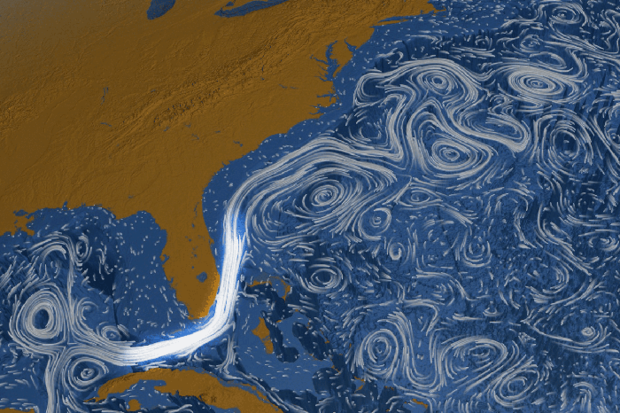Reassessing the stability of the Florida Current: New insights from 40 years of observations


The Florida Current has remained stable, a new study finds. Credit: NOAA
There is growing scientific interest in quantifying how large-scale ocean circulation is evolving as part of a changing global climate. Of particular interest is the potential weakening of the Atlantic Meridional Overturning Circulation (AMOC). However, the strength of the Florida Current, a key component of the AMOC, has remained stable for the past four decades, according to a new study by scientists at NOAA’s Atlantic Oceanographic and Meteorological Laboratory (AOML), the University of Miami Cooperative Institute for Marine and Atmospheric Studies (CIMAS) and Rosenstiel School, and the National Oceanography Centre (UK).
The AMOC is the Atlantic (Ocean) portion of the Global Meridional Overturning Circulation (MOC). It is an important part of this global system that moves water northwards and southwards in the Atlantic Ocean, connecting surface and bottom water flows across the globe. The AMOC controls the transport of heat, freshwater, carbon, nutrients, and other properties across the basin, meaning that changes in the AMOC’s strength could impact many global scale climate phenomena such as sea level, extreme weather, and precipitation patterns.